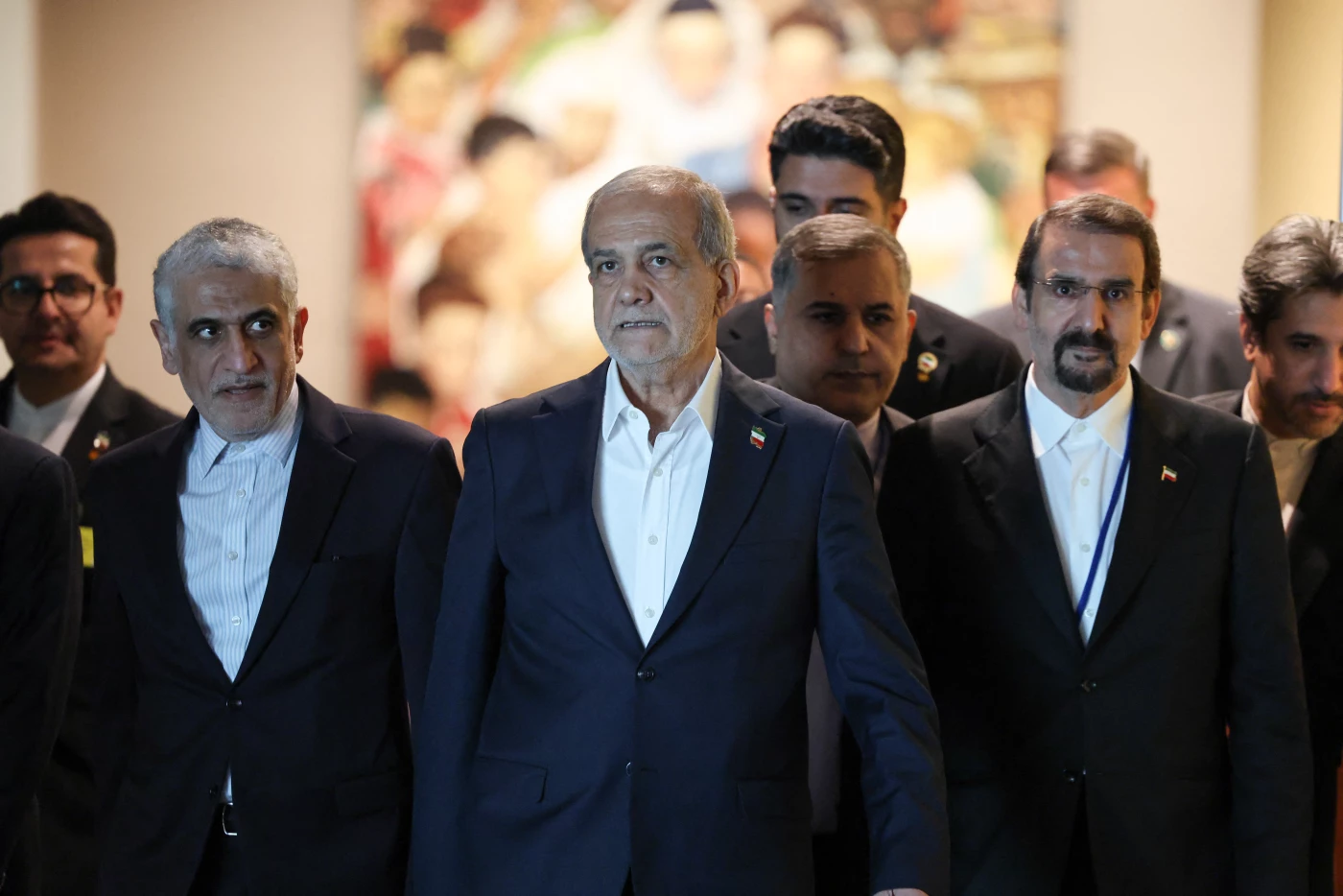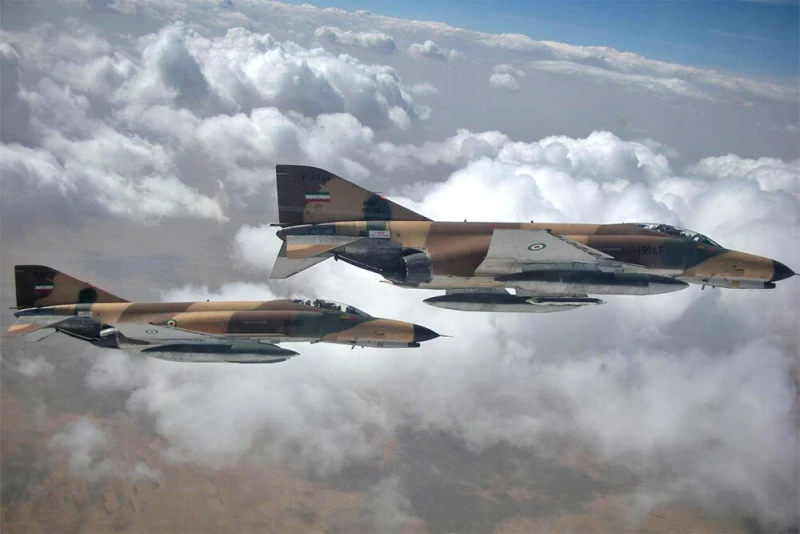ERBIL, Kurdistan Region of Iraq - Iranian President Masoud Pezeshkian on Wednesday said that Iran would never bow to coercion and will circumvent “unwelcome” sanctions as European powers prepare to reimpose crippling sanctions on the Islamic republic.
“Iran seeks peace and stability, but it will never yield to coercion. While the return of any sanctions is unwelcome, it does not mark the end of the road, nor will we surrender to them. We will find a way out of every situation, especially as Iran today, beyond its extensive bilateral ties with neighbors, also enjoys significant regional and global leverage,” Pezeshkian said on the sidelines of the UN General Assembly in New York.
He pointed to Tehran’s membership in several global organizations such as the Shanghai Cooperation Organization (SCO), BRICS, and the Eurasian Economic Union, as proof of its international support.
Iran is expanding its ties with the East, having joined the Shanghai Cooperation Organization, an economic and security organization established by Russia and China in 2023, and BRICS, considered a counterpart to the G7 bloc, in 2024.
Pezeshkian further stated that Tehran has never sought nuclear weapons and is not pursuing them, adding that Iran is “not turning away from dialogue, but dialogue makes sense by avoiding coercion and from an equal position.”
Western powers believe Tehran is pursuing efforts to develop nuclear weapons, while Iran maintains its nuclear program is for peaceful purposes.
Iranian Supreme Leader Ayatollah Ali Khamenei said Tuesday that nuclear negotiations with the US are a "complete deadlock" and would lead to "irreparable losses" in the current circumstances.
Iran had warned earlier in the week that it would suspend cooperation with the UN nuclear watchdog if the Security Council votes to activate the snapback mechanism by September 28.
Addressing the UN General Assembly on Wednesday, Pezeshkian said that Iran has stood firm in the face of adversaries throughout history and “does not bow to invaders.”
The Iranian attendance at the yearly meeting comes as Tehran is on the verge of facing the “snapback” mechanism from European countries, a move that would reinstate international sanctions due to an alleged lack of cooperation regarding the Islamic republic’s nuclear program.
Under the 2015 nuclear accord with world powers, officially called the Joint Comprehensive Plan of Action (JCPOA), from which the US unilaterally withdrew in 2018, the snapback mechanism permits the reactivation of UN sanctions if Iran is deemed in violation of its nuclear obligations.
Iran has repeatedly threatened to withdraw from the Nuclear Non-Proliferation Treaty (NPT) if the snapback mechanism takes effect.
Iranian diplomats have complained of draconian restrictions on their activities in New York, including limitations on travel and shopping. On Wednesday, foreign ministry spokesperson Esmail Baghaei stated that the restrictions constitute a “new low in terms of showcasing the extent of animosity of US administration towards Iran,” accusing Washington of “systematic harassment of Iranian diplomats,” which he said has obstructed delegates from attending “several multilateral events that were held outside the so-called ‘permitted parameters’ during this week only.”
On Tuesday, the US State Department announced that the restrictions are part of its “maximum pressure” policy against Tehran. A statement said the delegation is restricted from entering “luxury shops” and is only permitted to travel to “the areas strictly necessary,” adding that the people of Iran are suffering from poverty and energy shortages.



 Facebook
Facebook
 LinkedIn
LinkedIn
 Telegram
Telegram
 X
X


